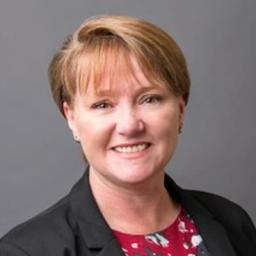Necessity is the mother of reinvention
By Sue Beavil
By Sue Beavil, Senior Training & Development Manager, Mayer Brown
There has been much talk about the need for law firms and lawyers to reinvent themselves if they are to remain competitive. So, if they are going to reinvent themselves, how can learning and development help them with this process?
To reinvent a firm or individuals effectively and as painlessly as possible, both the people and the firm need to have a learning mindset and true resilience - both of which can be developed.
If people are willing, they can change how they behave and how they operate, making reinvention possible. If a business has to change and adapt or reinvent itself, then its people need to be able to match the firm's new strategic direction, new business objectives and goals.
Winston Churchill is believed to have said "to improve is to change; to be perfect is to change often". For individuals to perform to their full potential, they need to be supported when expected to reinvent themselves. They need to be able to change and, sometimes, to change often.
New beginnings
Law firms are having to change and adapt because of globalisation, advances in technology, shifting client demands, more competitive marketplaces and mergers. Understanding the required direction is therefore the starting point for reinvention. What do individuals want to achieve? What are the new goals expected of them?
A sense of excitement often surrounds new beginnings as well as, for some, a fear of the unknown. Having a well constructed, practical and well-communicated action plan is therefore helpful to contain excitement and manage fears. If the business is changing, it is essential that the new course plotted for the helm to follow is communicated to everyone else embarking on the journey in a way that is meaningful to them, honest and personal.
Specific and actionable objectives and goals that link the activities and performance of an individual to the new business horizon will foster a more engaged team and more motivated individuals; after all, most people like to know where they're going and how they're expected to get there.
In order to adopt new ways of working or new challenges, individuals need to believe that they will be successful. They need some form of evidence that they have achieved something similar in the past, so incremental change tends to be more successful than wholesale change.
Learning and development, and coaching and mentoring in particular, are powerful tools that can be used by change agents in such situations. Identifying the skills and attributes necessary for success and then developing people into their new roles or activities is simply an extension of the approach already well used in firms by their L&D teams to develop employees and partners.
Firms facing change should consider what their individuals need to be able to do that they were not doing before. Is the reinvention requiring individuals to adjust to a new context for the delivery of their existing skills? Are individuals capable of carrying out their new tasks and activities? Do they want to reinvent themselves?
Talent and retention need to be taken into consideration at this stage. The last thing a changing firm needs is to lose its most talented individuals because of poor communication of the intended change.
Using case studies and experiential learning to highlight how individuals will be able to contribute and be involved in the new environment, and where they can add value, will make the difference between adoption and rejection of the 'reinvention' message.
Helping individuals through one-to-one or small-group coaching sessions to gain clarity of their specific contributions and the expectations of the business will help individuals to see for themselves the need to adapt and change.
Beyond comfort zones
The business of reinvention is possible but often difficult, as it tends to push individuals to the edge or even beyond their comfort-zone boundaries. The art ?of successful reinvention appears therefore to be rooted in the desire and belief of individuals in the need to do things differently.
Sue Beavil is the senior learning ?and development manager at ?international law firm Mayer Brown ?(www.mayerbrown.com)

